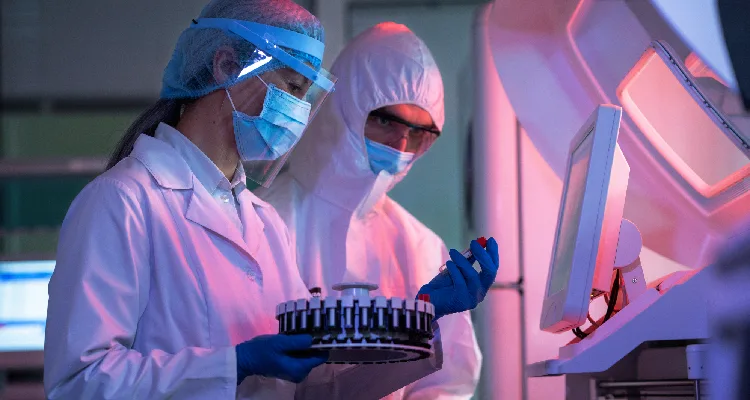Cancer has always been a complex disease, often treated with surgery, chemotherapy, or radiation. While these treatments remain important, they can affect both cancerous and healthy cells. In recent years, science has made a remarkable breakthrough using the body’s own immune system to fight cancer. This is known as immunotherapy, and one of the most promising types is CAR T-cell therapy.
CAR T-cell therapy is not just a treatment; it’s a form of personalized medicine that turns a patient’s immune cells into powerful cancer-fighting tools. In this blog, we explore how this advanced therapy works and how it’s changing the way we treat cancer.
What Is CAR T-Cell Therapy?
CAR T cell therapy stands for Chimeric Antigen Receptor T Cell Therapy. It is a type of immunotherapy that modifies a patient’s own T cells (a type of white blood cell) to recognize and kill cancer cells. These T cells are part of our immune system and usually help protect us from infections. However, cancer cells can often escape detection or block immune responses.
To overcome this, CAR T-cell therapy reprograms T cells to specifically identify and attack cancer, much like training them to become cancer hunters.
How the Immune System Is Used in CAR T-Cell Therapy
Here’s a step-by-step explanation of how the patient’s immune system becomes a cancer-fighting force through CAR T-cell therapy:
-
- Collecting T Cells
Blood is taken from the patient and T cells are separated out using a special machine in a process called leukapheresis.
-
- Reprogramming in the Lab
In a laboratory, these T-cells are genetically modified to produce special receptors called chimeric antigen receptors (CARs). These new receptors help the T-cells recognize specific proteins on cancer cells.
-
- Multiplying the Modified Cells
Once reprogrammed, the modified CAR T-cells are grown in large numbers, often in the millions, to ensure they can mount a strong attack against cancer.
-
- Preparing the Body
Before the CAR T-cells are infused back into the patient, a short round of low-dose chemotherapy is given. This reduces other immune cells and makes room for the new CAR T -T-cells to work effectively.
-
- Infusing the CAR T-cells
The modified T-cells are infused into the patient’s bloodstream, similar to a blood transfusion. From there, the CAR T-cells circulate through the body, searching for cancer cells.
-
- Attacking Cancer Cells
When the CAR T-cells find cancer cells with the targeted protein, they bind to them and release chemicals that kill the cancer. These CAR T-cells can also multiply inside the body, continuing to patrol and destroy cancerous cells.
Types of Cancer Treated by CAR T-Cell Therapy
CAR T-cell therapy has shown strong results in certain blood cancers, including:
- Acute Lymphoblastic Leukaemia (ALL)
- Diffuse Large B-Cell Lymphoma (DLBCL)
- Mantle Cell Lymphoma (MCL)
- Multiple Myeloma
Currently, its use in solid tumors (like lung or breast cancer) is being studied in clinical trials. Researchers hope to expand its application in the near future.
Benefits of CAR T -Cell Therapy
CAR T-cell therapy offers several unique advantages:
Targeted Treatment
Unlike chemotherapy, which can harm both cancerous and healthy cells, CAR T-cells are trained to attack only cancer cells, making the treatment highly specific.
Long Term Protection
In some patients, CAR T-cells remain in the body after treatment, offering continued protection and reducing the chances of relapse.
Hope After Other Treatments Fail
CAR T-cell therapy is often used when other treatments like chemotherapy or bone marrow transplants haven’t worked. For many, it represents a last but powerful option.
Are There Side Effects?
As with any powerful treatment, CAR T-cell therapy comes with potential side effects, including:
- Cytokine Release Syndrome (CRS): A flu-like condition that can cause fever, low blood pressure, or difficulty breathing.
- Neurological Issues: Some patients experience confusion, headache, or difficulty speaking.
- Weakened Immunity: The treatment may make patients more prone to infections temporarily.
These side effects are usually treatable, and patients are closely monitored during and after therapy.
The Future of CAR T-Cell Therapy
CAR T-cell therapy is still evolving. Scientists are working on:
- Making the treatment safer and more affordable
- Using off-the-shelf CAR T-cells from donors
- Expanding it to treat solid tumors
- Combining it with other therapies for even better results
As research continues, this therapy could become standard care for many more types of cancer.
CAR T-Cell Therapy at Medical Trust Hospital
CAR T-cell therapy represents the future of cancer treatment, one that is personalized, precise, and powerful. It shows how the human immune system, when trained correctly, can become a natural weapon against one of the toughest diseases.
At Medical Trust Hospital, we are proud to be among the few advanced centers offering CAR T-cell therapy in India. Our well-equipped oncology unit, expert team of specialists, and compassionate approach make us a trusted destination for patients seeking the latest in cancer care.
If you or someone you know is facing blood cancer and looking for advanced treatment options, CAR T-cell therapy at Medical Trust Hospital could be a life-changing option.
